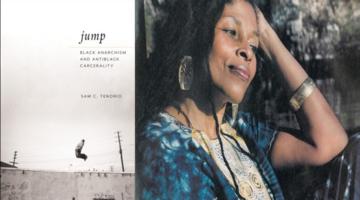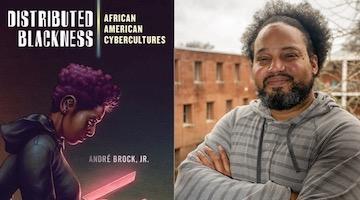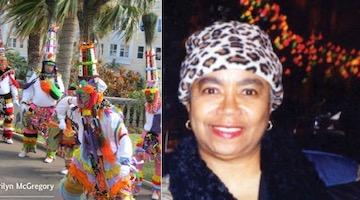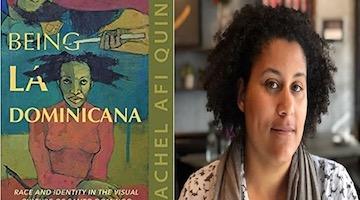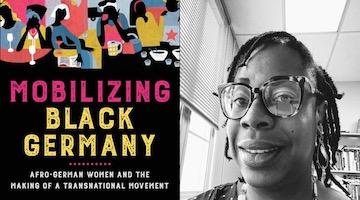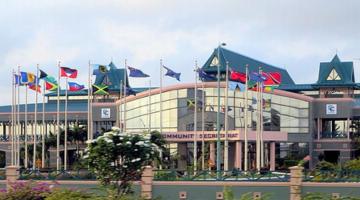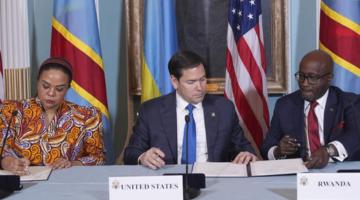The lies that are told about the history and people of Congo are then used to defame Black people everywhere, including the US.
“The slow normalization of nonsense about the Congo has been part and parcel of the long history of repetition and circulation of racist, classist, or sexist stories.”
In this series, we ask acclaimed authors to answer five questions about their book. This week’s featured author is Johnny Van Hove. Van Hove works as a scientific consultant in the field of migration. He writes for various news media in Germany, the U.S., and Belgium. His book is Congoism: Congo Discourses in the United States from 1800 to the Present.
Roberto Sirvent:How can your book help BAR readers understand the current political and social climate?
Johnny Van Hove: Congoism helps to understand the “Congo,” which stands for both a central region in terms of global capitalist exploitation (i.e. today's Democratic Republic of the Congo) as well as an important imaginative place (i.e. “the Heart of Darkness,” “the Rape Capital of the World” etc.) through which Otherness in terms of race and especially class are negotiated in the United States, both within and without the Black American communities. Congoism helps to understand the interconnection of external oppression and internal discrimination by investigating the ways through which external real-and-imagined places like the Congo are discursively used for internal political purposes – for any ideology, really, whatever works best in any age or time. One of the most urgent questions that drove Congoism is how nonsensical information about the Congo can rise to the status of “fact.” In times that are described by some as “postfactual” this kind of investigation matters greatly. While digging deep into the Black American archives, Congoism shows that the slow normalization of nonsense about the Congo has been part and parcel of the long history of repetition and circulation of racist, classist, or sexist stories. Because they have been circulating for such a long time, these narratives are believed more easily, no matter how baseless they are. Observing the current U.S. administration, these issues could not be more relevant.
What do you hope activists and community organizers will take away from reading your book?
A deeply skeptical attitude towards knowledge productions and knowledge gatekeepers in general. I am on thin ice with this, given the current ongoing rhetoric of “fake news.” It remains essential, however, to insist on questioning what we know, how we know it, and why we know certain things. Another important point that Congoism makes, is the refusal to accept boundaries for well-argued, well-researched critique and to motivate everyone who is willing to listen to jump into unchartered knowledge territory. To give but one example: the number of affirmative, positive Congo utterances in the Black intellectual archive are clearly outnumbered by their more negative, critical, defaming pendants. Yet the broad majority of scholarly investigations that focus on Black American discourses on the Congo downplay this observation to great extent, if thy mention it at all. To uncover this tendency in academic work comes with a price – going from frowned eyebrows to utter disbelief and allegations of prejudice and bias – that innovators and radicals in general must be willing to pay.
We know readers will learn a lot from your book, but what do you hope readers will un-learn? In other words, is there a particular ideology you’re hoping to dismantle?
Congoism is about unlearning to accept the unacceptable about the Congo, which we are fed on a daily basis through the news media, through (non-)fictional books, through tv series, and other forms of cultural interaction. Congoism is about refusing to disconnect reality from discourse (and vice versa) and to come to terms with how truths – or what is said to be truths – are produced. Again, the necessity and urgency of these epistemic questions, which are by no means purely academic, should be instantly clear by looking at the current populist political landscape in Europe and the United States.
Who are the intellectual heroes that inspire your work?
I am attracted to a type of intellectual with a restless, searching, empirical mind. In the field of history, Manning Marble's critical work was inspirational, for instance – his “tough love” for his subjects, especially in his final work on Malcolm X, has been a constant reminder of what is needed, sometimes, to get to the bottom of things. Looking closely at how Howard Zinn's methodology and methods work, especially in terms of his intersectional approach to history, has been important to Congoism, too. A variety of seemingly unconnected authors, to name but a few: Gananath Obeyesekere, Michelle Alexander, Edward Said or Tricia Rose, have been inspirational in terms of style, intellectual vigor, and “gutsiness.”
In what way does your book help us imagine new worlds?
Congoism explicitly attempts to map and discuss promising, relevant routes to counter current discourses on the Congo. This matters. If there is a lack of careful attention to the ways the Congo is discussed – i.e. concerning what metaphors are used, what methods re applied to come to conclusions –any form of future that goes beyond the past solutions for Central West Africa can hardly be imagined. If we remain stuck in a timeless loop of rhetorical sameness, flawed rationale and weak arguments, the future as a concept has no real meaning. Congoism is a constant reminder that world politics are also U.S. American politics – not just in terms of the political pressure that the U.S. uses in geopolitical policies, but also because of the internal epistemics that are at work while debating external issues. To question the innocence and egocentrism pervading geopolitical debates that seem, at first, only marginally relevant to the home front is another way of finding a point of view that is able to transcend boundaries of the (national) self. Without that, true solidarity is difficult to achieve.
Roberto Sirventis Professor of Political and Social Ethics at Hope International University in Fullerton, CA. He also serves as the Outreach and Mentoring Coordinator for the Political Theology Network. He’s currently writing a book with fellow BAR contributor Danny Haiphong called American Exceptionalism and American Innocence: A People’s History of Fake News—From the Revolutionary War to the War on Terror.

